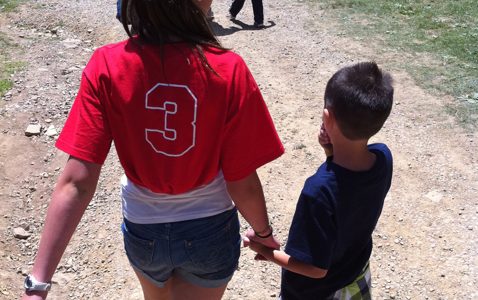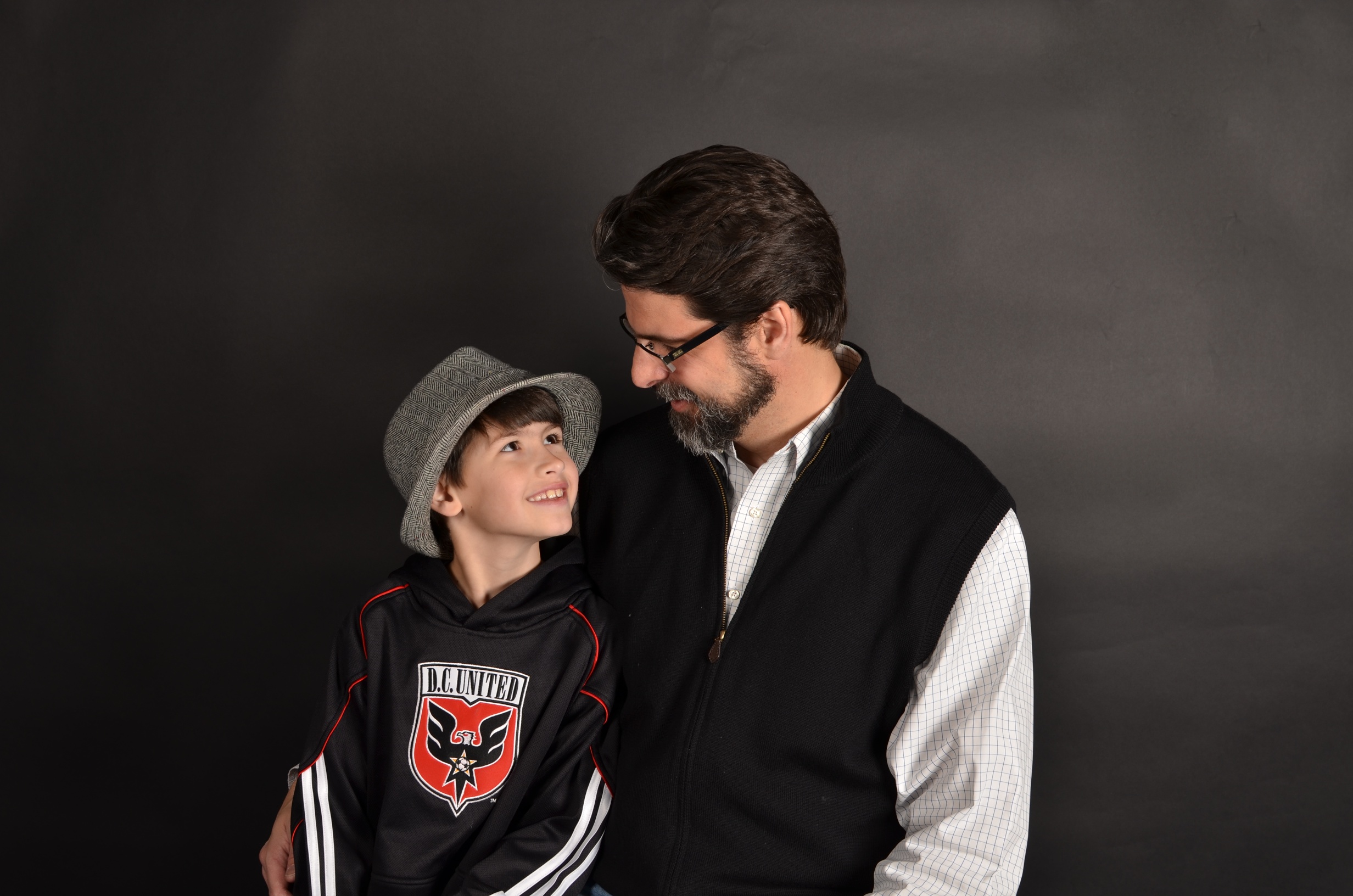TLDR: I am not going to tell you how. I don’t know how you should mourn, but be sure to let others take the time they need.
It is sad to me how many people feel the need and the right to tell others how they are to mourn. Certainly there are ways of coping and responding that are healthier and more destructive than others. But I continue to be surprised at how many, especially those claiming a Christian perspective, tell others that they should be “moving on” or that, since they believe in the resurrection, it is wrong to continue to be sad and cry when they remember their child/mother/spouse/friend who is gone. Charity is the farthest thing from such attitudes and sentiments, no matter how sincerely expressed. Each person will grieve and mourn in their own unique way and should be given the room and support that they need.
Kay Warren recently wrote about this on her Facebook page leading up to the one year anniversary of the suicide of their son. People want so badly to just move on, as if nothing has happened, and for them that may be the case. But for those of us who have lost someone, you never “get over it.” I would echo Kay’s own request.
Here’s my plea: Please don’t ever tell someone to be grateful for what they have left until they’ve had a chance to mourn what they’ve lost. It will take longer than you think is reasonable, rational or even right. But that’s ok.
Now none of this is to suggest that we wallow in our grief and loss. Massive amounts of eating or drinking or Netflix binging is not healthy at any time. It certainly won’t help those who grieve. It is very important that as we grieve we continue to keep in touch with a doctor, counselor, or pastor who can help us remain on as healthy a path as possible. Yet we must walk that path, we no longer have a choice as to which road to travel.
 I have heard far too many stories from friends and family whose father or mother “died” when their sibling did. The loss of that child caused them to become bitter or withdrawn to such an extent that the rest of the family no longer mattered to them. This is, it turns out, a fairly common occurrence and certainly a concern that E and I have had from the outset. We are blessed with a wonderful daughter (and nieces and nephews, parents and siblings) and we try to celebrate that as often as we can. We try to make sure that she always knows how much we love and support her and are proud of who she is. She is bearing a difficult enough burden without our adding to it.
I have heard far too many stories from friends and family whose father or mother “died” when their sibling did. The loss of that child caused them to become bitter or withdrawn to such an extent that the rest of the family no longer mattered to them. This is, it turns out, a fairly common occurrence and certainly a concern that E and I have had from the outset. We are blessed with a wonderful daughter (and nieces and nephews, parents and siblings) and we try to celebrate that as often as we can. We try to make sure that she always knows how much we love and support her and are proud of who she is. She is bearing a difficult enough burden without our adding to it.
It was only after we lost Mack that I found out that a childhood friend had also lost a son. Logan lost his battle with cancer and three siblings remain, a big sister and two younger brothers. Sherry wrote yesterday about some private time she was sharing with her daughter.
As we strolled through the park, I asked her why she’s mean to Isaac and Brady. Why she excludes them. Why she’ll be nice one moment and then horribly unkind the next.
She released a great sigh. I thought she was going to say something snotty or dramatic; I thought she would, for the upteenth time, accuse me of loving her less than the others, or even worse, of not loving her at all.
But she didn’t. And what did come out of her mouth shocked me.
With a sad sort of reticence in her eyes, she looked up at me, swatted a hair out of her eyes, and said I included Logan. I loved Logan. And he died...
The words were like a slap to the face. She’s scared that if she loves them like she loved Logan, they’ll leave her.
I wasn’t sure what to say. I cleared my throat, but my 36 years on this planet haven’t given me the right words to respond. So instead, I told her to never fear loving someone else. I told her to love as well as she could; to embrace others for who they are and to look for shades of God in everyone she meets.
And then we got home and she went up to bed and I sat alone in the dark, ruminating over how unfair it is that my 9-year old has to shoulder such an impossibly heavy burden.
Whether you are 9, 39, or 93 it is unfair. For what it is worth, I think her answer was perfect. There are no “right words,” but she told Abby that they continued to love her and that it was OK for her to still love others, as best she could. How should a 9 year old mourn?
All of these various posts, updates, and discussions brought me back to a book I was given when Mack died and which I shared on this site last February. Good Grief by Granger Westberg is a great little volume. He specifically addresses this pernicious Christian assertion that according to Paul we are not to grieve. 1 Thess. 4:13 is often misread; “Grieve not!” is what many Christians exhort to those in grief, citing this passage and saying those whose hope is in the resurrection should not grieve! But as Westberg points out, that is not the whole of the verse and where you put the comma, so to speak, makes all the difference.
Grieve — not as those who have no hope.
The NRSV reads in full:
1 Thess 4:13 But we do not want you to be uninformed, brothers and sisters, about those who have died, so that you may not grieve as others do who have no hope. 14 For since we believe that Jesus died and rose again, even so, through Jesus, God will bring with him those who have died.
The promise and hope of the resurrection doesn’t mean that we won’t or shouldn’t grieve, but it does mean that in our grieving we may also find comfort in the knowledge that “we will be with the Lord forever.” But we are not there yet. We remain in this world and so even as we have a new, different, perhaps deeper spiritual connection with our loved one, we are not yet reunited. It is understandable that we would get wistful or teary when their name comes up or some image or sound reminds us of them. That isn’t something “to get over,” rather it is something to cherish, as bitter as its taste may be.
So we say, “Grieve—not as those who have no hope,” but please, when you have something worth grieving about, go ahead and grieve.”
— Westberg





2 thoughts on “How we should mourn”
Dean Brady, what a wonderful quick thought on grieving. It has only been three weeks since my 10 year old son passed and many of my Christian friends tell me that my son is in a better place, he’s complete and that he is not in pain. Maybe so but I’m still beginning the painful process of grieving. I’ve also been told that in time the hurt will pass. I cant imagine the pain will ever dull but I hope I find a healthy way to embrace it. I am trying to find the right path to deal with lthe hole in my heart so I can live a healthy life for my husband and two other children. My son had severe autism so I spent the last 10 years 7 months of his life caring for him 24/7. I am dealing with his loss and also a void of my everyday life that Matthew filled. I look forward to reading this blog and any other helpful information it can lead me to. Many thanks for bringing this blog to my attention when my son Zac and I spoke to you at the Spring Haven CC evnt for Schreyer’s accepted students on April 8, 2014.
Dear Mrs. Cohen,
I count it a sad, but gracious providence that we should meet last week. My wife and I think about you every day and continue to pray for you and your family.
I do believe that Matthew is whole and well. But you are right, we are left with holes in our lives, pain that won’t go away. And it won’t. It will become different, certainly, but who can we not miss our boys? One of the tricks is to try and find a way to remember, even through our tears, in a way that allows us to thereby keep them alive, close to us.
The path metaphor is apt and one I use often. We have not chosen the path we are now on, but we can chose whom we take with us and what we carry. Allow your grief to wash over you, do not feel a need to hide it or pretend it doesn’t exist, but at some point we have to make the choice to get up and continue the journey. There are many who need us to continue the journey with them, including Zac and our daughter Izzy.
Perhaps a mother’s perspective will help as well. My wife writes occasionally on the site we have set up for Mack’s fund. You might find her thoughts helpful as you mourn.
Peace be upon you and your family.